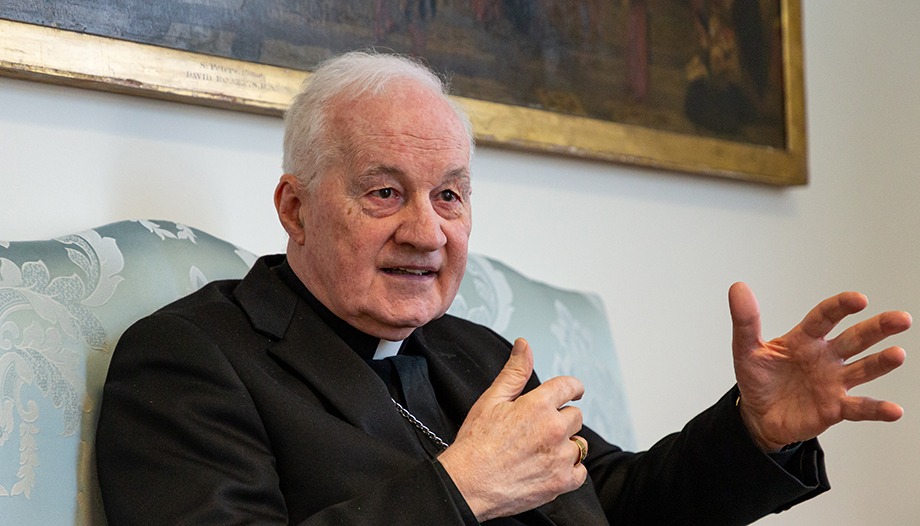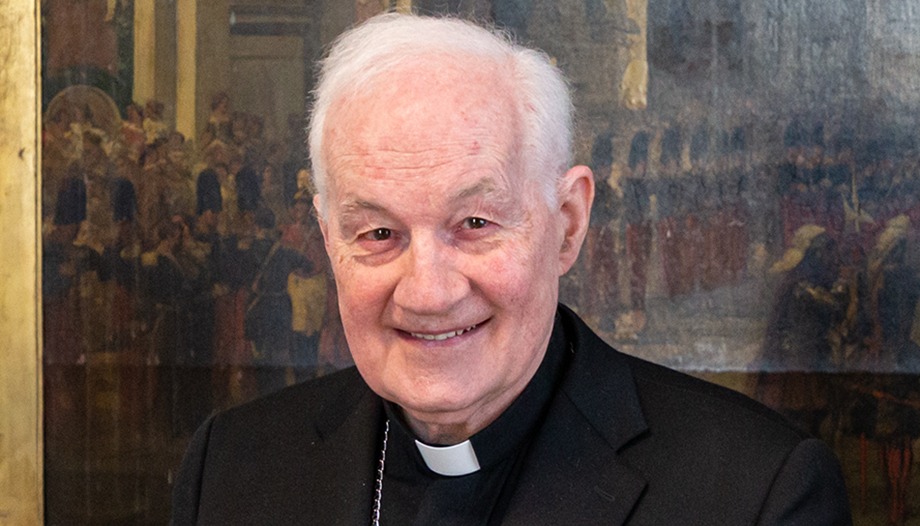The Prefect of the Dicastery for Bishops, Marc Ouellet has granted an interview to Omnes. We now anticipate some of his answers: those concerning the situation created by the recent cross-cutting between the Vatican Secretary of State, Pietro Parolin, with the signature also of the Ouellet and Cardinal Luis Ladaria, and specifically authorized by Pope Francis, on the one hand, and Bishop Georg Bätzing, Bishop of Limburg and President of the German Bishops' Conference, on the other.
The exchange of letters originates in the consultation addressed to the Holy See by five German bishops as to whether it is possible for them, or even obligatory, to participate in the Commission which, according to the will of the so-called Synodal Way, would constitute a "Synodal Council" for the government of the Church, which could substitute or condition the authority of the bishops.
The Holy See was consulted on December 21; it responded with a letter dated January 16 and received by Bätzing on January 20, and the latter published his reaction on January 23.
The following day, the Omnes interview with Cardinal Marc Ouellet, Prefect of the Dicastery for Bishops, took place in Rome. The full conversation deals with various aspects of the German Synodal Way and will be published in Omnes magazine on February 1.
The role of bishops
Ouellet's position on the Synodical Council raised is that: "Whether the structure of the Synodal Council will lead to the establishment of a functioning Synodal Council like what we have seen, and whether that is to be in the future the mode of government of the Church in Germany, I have already told the bishops very clearly [during the ad limina visit in November].This is not catholic. It may be the praxis of other Churches but it is not ours. It is not, because it does not conform to Catholic ecclesiology and to the singular role of the bishops, derived from the charism of ordination, which implies that they must have their freedom to teach and to decide.
There is a subtle formula here, by which they could voluntarily decide to resign and accept in advance the majority vote of this eventual Council. What is certain is that this cannot be done; it would be to renounce the episcopal office.
The answer, in a way, says that they are going to respect the whole canonical order. That is good. That means that the dialogue must continue. We are waiting for them to tell us more concretely what they want to do, and of what nature this renunciation will be. On this we have quite serious objections"..

It is clear that the dialogue must be continued
The dialogical and fraternal tone of the Secretary of State's letter does not preclude a clear and categorical tenor regarding the possibility of a Synodal Council such as the one intended up to now.
Says Ouellet to Omnes: "They have no competence to do this.". And he is cautious about Bätzing's expressed willingness to go ahead, while guaranteeing respect for canonical norms: "If they want to do it this way, they must show it. In what form will it be? From experience we don't see it that way; on the contrary, experience tells us that this is dangerous.".
Omnes asks him about the successive stages in this path of dialogue, which both parties want to keep open, and he responds: "We will see in what way the dialogue will continue. Now he has to respond to the Secretary of State. Then, we will see how we continue the dialogue, because it is clear that we have to continue it, also to help them to stay in the Catholic channel.".
The five bishops who raised the initial question (those of Cologne, Eichstätt, Augsburg, Passau and Regensburg) could even decide not to participate in the Commission that would constitute the disputed "Synodal Council".
We asked Cardinal Ouellet if that would mean the end of the Synodal Way itself, to which he replied: "This Path causes division, and it is one of the things I told them: division not only in the Church, but also in the world episcopal college, as was seen with the bishops who intervened to express their concerns from what they hear. The unity of the world episcopate is absolutely fundamental for the Church, especially in a world that is moving towards a 'third world war' that is already underway. The world episcopate is an extraordinary force for peace, which we need to protect and maintain. The fact that all these proposals could sow confusion among God's people does not help world peace either, nor peace in the Church.".
The president of the German Bishops' Conference, Bishop Bätzing, and also the other leaders of the Synodal Way, seem determined to go ahead with their project, which - they assure us - will respect the norms in force.
Cardinal Ouellet is confident: "I trust in the grace of God and in the episcopate, which will gradually integrate our responses, and they will adjust themselves, they will look for ways to make the participation of the laity acceptable and to listen to them. This is what the Second Vatican Council wanted, which established that there should be a presbyteral council, a pastoral council, etc., at the parish, diocesan and universal levels... However, these things are still not applied in many dioceses of the world, which do not live this basic synodality. Now, between saying that these structures of listening must work, and saying that from now on it will be decided democratically, and the bishops accept in advance the result of the vote... there is a huge margin, huge! The Church is hierarchical, it is not democratic.".











